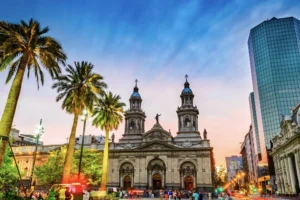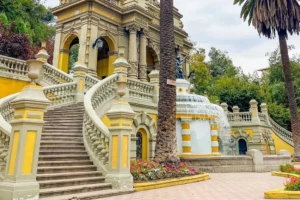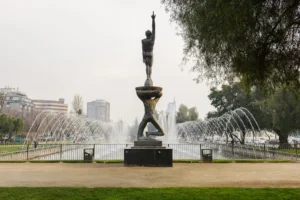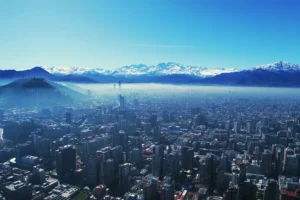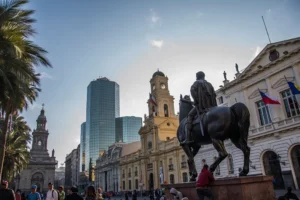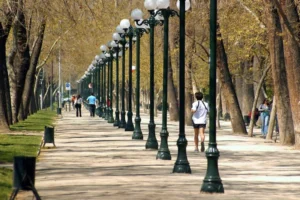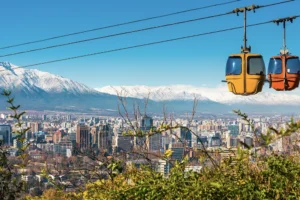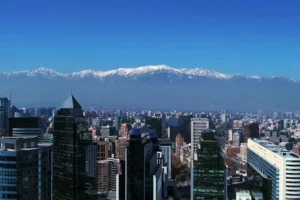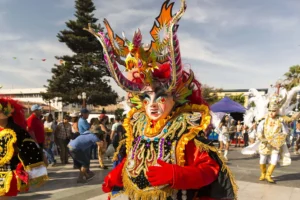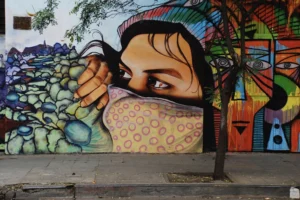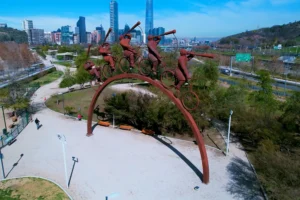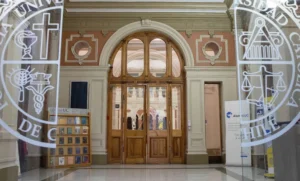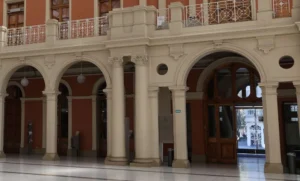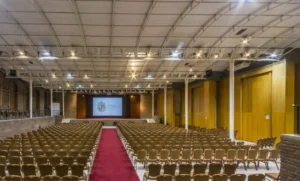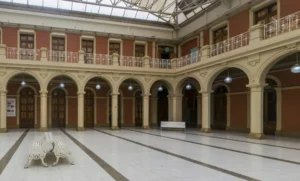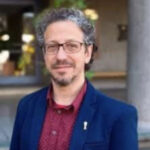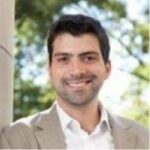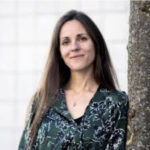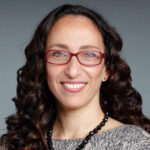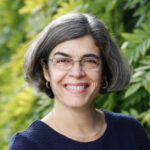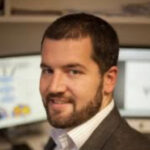Santiago de Chile
29th ANNUAL
MEETING OF
THE ASSC
June 30th to July 3rd, 2026

The 29th annual meeting of the Association for the Scientific Study of Consciousness will be held at the Casa Central (Pontificia Universidad Católica de Chile), Santiago de Chile, on June 30th to July 3rd, 2026.
Calls for Abstract submissions is NOW OPEN!
The program committee of the ASSC29 now welcomes submissions of abstracts on any topic relevant to the scientific study of consciousness.
The topics of ASSC 29 comprise empirical, theoretical and philosophical investigations on the neural correlates of consciousness and subjective experience. Deadlines and procedures for the submissions for posters, workshops and tutorials will be announced shortly.
Conference organisers
Constanza Baquedano, Universidad Adolfo Ibañez (Chile)
Andrés Canales-Johnson, University of Cambridge (UK)
Josefina Cruzat, Universidad Adolfo Ibañez (Chile)
Vicente Medel, Universidad Adolfo Ibañez (Chile)
Tomás Ossandón, Universidad Católica de Chile (Chile)
Jacobo Sitt, Paris Brain Institute (France)
Enzo Tagliazucchi, Universidad Adolfo Ibañez (Chile)
Christopher Timmermann, University College London (UK)
Submissions from a variety of disciplines will be accepted, including Psychology, Medicine, Neuroscience, Computer Science, Philosophy, Biology and Mathematics. Stay tuned for future announcements by subscribing to our mailing list. We are looking forward to hosting you in Santiago!
Scientific committe
Anat Arzi, The Hebrew University of Jerusalem (Israel)
Sergio Barberis, University of Buenos Aires (Argentina)
Pablo Barttfeld, Universidad Nacional de Córdoba (Argentina)
Ignacio Cea, Universidad Adolfo Ibañez (Chile)
Christ Alejandra Devia Manríquez, Universidad de Chile (Chile)
Cecilia Forcato, Instituto Tecnológico de Buenos Aires (Argentina)
Ryōta Kanai, Araya, Inc. (Japan)
Matthias Michel, New York University (USA)
Raphaël Millière, Macquarie University (Australia)
Liad Mudrik, Tel Aviv University (Israel)
Diana Pérez, University of Buenos Aires (Argentina)
Ana Solodkin, University of Texas (USA)
Guillermo Solovey, Universidad de Buenos Aires (Argentina)
Antoni Valero Cabré, Paris Brain Institute (France)
Abel Wajnerman Paz, Universidad Católica de Chile (Chile)
Ghislaine Dehaene-Lambertz (Centre National de la Recherche Scientifique (CNRS), France)
Liad Mudrik (Tel Aviv University, Israel)
Claire Sergent (Université Paris Descartes, France)
Biyu He (New York University, USA)
Megan Peters (University of California, Irvine, USA)
Olivia Carter (University of Melbourne School of Psychological Sciences, Australia)
About Santiago
Santiago is the capital, largest city, and cultural heart of Chile.
Nestled in a vast valley between the peaks of the Andes range and the pacific coast, the city is a blend of natural splendor and urban energy.
With its unique geography, Santiago invites visitors to experience snow-capped mountains and lush vineyards, contemporary art galleries and centuries-old cathedrals — all within an hour’s reach.
As one of Latin America’s most vibrant cities, Santiago is a dynamic hub of ideas, innovation, and creativity.
The city boasts a thriving intellectual scene and is home to several of Chile’s leading universities and research centers.
Its neighborhoods each have a distinct character: from the historic core of downtown Santiago, with its colonial architecture and civic institutions, to the bohemian quarter of Bellavista, alive with street art, music, and gastronomy.
Chile’s long and complex history is reflected in Santiago’s museums, monuments, and public life. The Museo de la Memoria bears witness to Chile’s recent past, while the Pre-Columbian Museum offers a glimpse into the deep cultural roots of the region. Santiago’s contemporary art spaces and literary cafés continue the country’s rich tradition of intellectual exploration.
For those drawn to nature, Santiago provides an ideal gateway to the Andes. Just beyond the city lie some of the region’s finest hiking trails, ski resorts, and natural parks. A short drive west leads to the Pacific coast and the colorful port city of Valparaíso, a UNESCO World Heritage site famed for its poetic spirit and dramatic hillsides.
ASSC in Santiago will offer participants not only a stimulating scientific program but also the opportunity to engage with a place where nature, history, and culture converge — an inspiring destination for a meeting on the science of consciousness.

Travelling to the venue and getting around
The conference venue is the Casa Central (Pontificia Universidad Católica de Chile), located in the Providencia district —just east of the historic center.
From Airport to Venue
Taxi or ride‑hail: Official airport taxis and ride‑hail services (like Uber or Cabify) are available curbside. A reliable fare to Providencia/Centro de Extensión typically runs between $15–$25 USD (CLP 12,000–20,000), and takes around 25 minutes, depending on traffic.
Airport shuttle bus: Tur-Bus (also called “Centropuerto”) runs shuttles to Terminal Alameda, near the central station. From there you can take a short taxi or metro ride to the university. Total travel time is about 40–50 minutes.
Public transport (metro + bus): A combination of bus and metro is the most economical choice. Take the Centropuerto bus to Estación Pajaritos (on Metro Line 1). Take the metro eastbound to Universidad Católica station. Walk a few blocks to Centro de Extensión. Expect 45–60 minutes in total; be sure to load a “BIP!” transit card upon arrival (available from kiosks at the airport or stations) for fares around 800 CLP (about $1 USD) per ride.
Navigating the City
Metro: Santiago’s metro system is modern, efficient, and covers most key neighborhoods, including Providencia, Bellavista, and downtown.
Stations are easy to navigate in English and Spanish, with trains running approximately every 3–7 minutes during peak hours.
Buses: Complementing the metro, the Transantiago system operates across the same BIP! card—helpful for reaching specific destinations less served by metro.
Taxis and ride-hail: Readily available throughout the city center and neighborhoods like Providencia, Ñuñoa, and Bellavista.
Walking and biking: Many streets around Providencia and the university are pedestrian-friendly, with wide sidewalks, crosswalks, and bike lanes. Santiago also offers public bike-sharing for short urban trips.
About the venue
The Casa Central is located on the central campus of the Pontificia Universidad Católica de Chile, in the heart of Santiago, will serve as the primary venue for ASSC conference.
Casa Central
Avenida Libertador Bernardo O’Higgins 340
Santiago de Chile
Keynote speakers
Contact Us
For Conference inquiries please contact Podium Conferences & Association Victoria, British Columbia.

